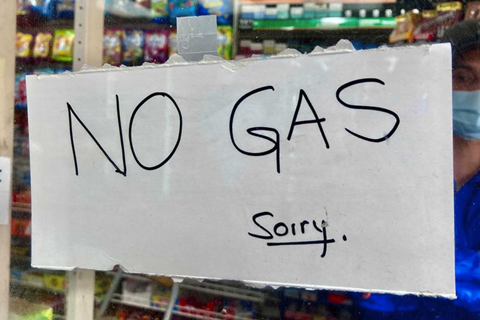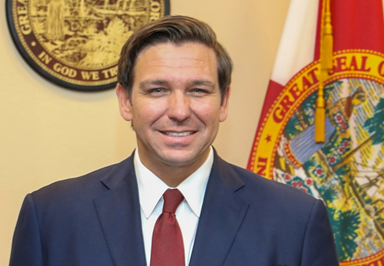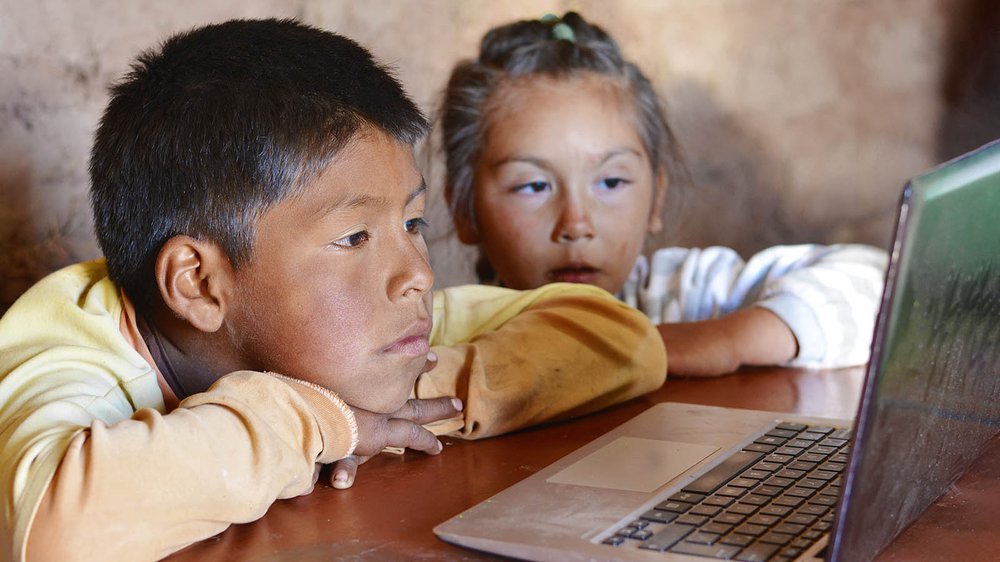Education Department, FCC Team Up to Connect Students to Broadband – By Lauren Camera, US News
With as many as 17 million students lacking an internet connection to log into classes or complete homework online, the federal government launched a major outreach campaign Wednesday to connect as many as possible.
But the announcement comes more than a year after the coronavirus pandemic shuttered K-12 schools and college dormitories, forcing those without a connection to share their parents' cellphones to complete assignments, huddle outside school buildings and libraries to participate in classes or tap into free wireless networks at fast food restaurants – one of the earliest and most visible examples of how the pandemic exacerbated inequities for low-income families.
"We now know that internet access is essential for modern life, and this pandemic has made it abundantly clear that broadband is no longer nice to have, it's need to have," Jessica Rosenworcel, acting chairwoman of the Federal Communications Commission, said to reporters Wednesday. "Even before this virus reached us where we live, we had millions of students who lacked the home broadband they need to complete online assignments from their teachers. They fall into the homework gap. It's the cruelest part of our nation's digital divide."
As part of the joint effort, officials from the FCC and the Education Department are seeking to contact millions of families whose children participate in the free or reduced-price lunch or school breakfast programs and the roughly 6.5 million recipients of federal Pell Grants to let them know they're now eligible for a monthly $50 discount on broadband services and a one-time $100 discount on an internet-connected device, like a laptop, desktop or tablet computer. Families on tribal lands are eligible for a $75 discount per month on broadband as well as the one-time device discount.

Gianforte signs bill greatly increasing education tax credit – By Mike Dennison, KTVQ
A bill vastly increasing a state tax credit that funds scholarships for private-school students has been signed into law by Gov. Greg Gianforte.
House Bill 279, which also expands the credit for donations to fund public-school “innovative educational” programs, increases the maximum income-tax credit from $150 a year to $200,000 – an increase of more than 13,000 percent.
Gianforte signed the bill Wednesday at a ceremony at the state Capitol, attended by many supporters of the credit benefiting private schools.
The increase comes two years after the U.S. Supreme Court reinstated the $150 tax credit in a landmark decision, overturning a Montana court ruling that said the credit was unconstitutional because it benefits private, religious schools.
Jeff Laszloffy of the Montana Family Foundation, a group that supports “school choice,” which is some form of state assistance or tax credits that help kids attend private schools, said the bill is the culmination of 13 years of work to create meaningful school choice in Montana.

As schools prepare for gas shortage, some go remote or cancel activities – By Maaz Nodan, K-12 Dive
The hacking of the Colonial Pipeline has "created a new set of challenges" for schools, families and employees across Georgia and the broader region, said Morcease Beasley, superintendent of Clayton County Public Schools, in a press release. "As a result, district officials are meeting daily to monitor the gas shortage to assess its potential impact on district operations."
The crisis comes as some schools and students in the region are still recovering from COVID-19 closures, and as superintendents plan to address learning losses. On the other hand, schools may find themselves better equipped, specifically with 1:1 devices and teachers trained in virtual learning, after COVID-19 closures to handle emergency disruptions.
Many schools in the South, however, have been open for in-person instruction for much longer and have had more students attend in-person than other regions, according to surveys routinely conducted by the Institute of Education Sciences and National Center for Education Statistics, arms of the U.S. Department of Education.
The duration of the gas shortage is still unknown, but some are looking to the end of the week as an indicator of whether the emergency will worsen or ease up. In a press briefing on Wednesday, U.S. Secretary of Transportation Pete Buttigieg said the government is working "around the clock" to help Colonial restart normal operations. "We’ll be doing everything that we can to reduce the impact that some Americans could see at local gas stations in some areas until the pipeline is brought back online," he added.

DeSantis signs bill expanding private school voucher programs – By Gray Rohrer and Leslie Postal, The Orlando Sentinel
Gov. Ron DeSantis signed a bill into law Tuesday greatly expanding the state’s K-12 school vouchers programs, limiting eligibility requirements and chipping away at oversight of the programs providing taxpayer-funded scholarships for low-income and disabled students to attend private schools.
DeSantis signed the bill, HB 7045, at the St. John the Apostle Catholic School in Hialeah, a school that relies heavily on state scholarships to cover student tuition. He repeated the motto of Florida GOP governors dating back to Jeb Bush, who signed the first voucher program into law in 1999: parents should decide where their child goes to school.
“By signing this bill we will be doubling down on our commitment to supporting our working families and making sure they have the ability to get their kids into the school of their choices,” DeSantis said.
The bill uses $200 million to allow about 61,000 more students to receive vouchers and expands eligibility so that families of four earning nearly $100,000 could qualify for the income-based scholarships once touted as a way to help children living in poverty. Those scholarships are now worth about 95% of public school per-student costs but under the new law will be worth the full amount, set at 7,795 per pupil in the budget passed by the Legislature.

Governor Ron DeSantis











